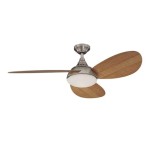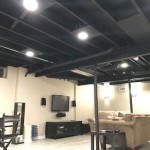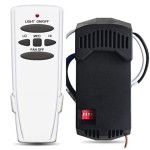Z-Wave Ceiling Fan and Light Switch: Enhancing Your Smart Home Automation
In the realm of home automation, Z-Wave technology has emerged as a reliable and robust solution for controlling various devices, including ceiling fans and lights. Z-Wave ceiling fan and light switches offer a seamless way to integrate these essential fixtures into your smart home ecosystem, providing remote control, scheduling, and energy-saving features.
If you're considering adding smart control to your ceiling fans and lights, understanding the key aspects of Z-Wave ceiling fan and light switches is crucial. Here's a comprehensive guide to help you make an informed decision:
Understanding Z-Wave Technology
Z-Wave is a wireless communication protocol designed specifically for home automation. It operates on a low-frequency band (908.42 MHz), ensuring stable and reliable connections even through walls and obstacles. Z-Wave devices form a mesh network, where each device acts as a repeater, extending the range and reliability of the system.
Benefits of Z-Wave Ceiling Fan and Light Switches
Z-Wave ceiling fan and light switches bring numerous benefits to your smart home, including:
- Remote Control: Control your ceiling fans and lights from anywhere using a compatible smartphone app or remote control.
- Scheduling: Automate fan and light operation based on time, temperature, or other triggers.
- Energy Savings: Optimize energy consumption by scheduling fans and lights to turn off when not in use.
- Voice Control: Integrate with voice assistants like Amazon Alexa or Google Assistant for hands-free control.
- Security Enhancements: Create the illusion of occupancy by programming lights and fans to turn on when you're away.
Choosing the Right Z-Wave Ceiling Fan and Light Switch
When selecting a Z-Wave ceiling fan and light switch, consider the following factors:
- Compatibility: Ensure the switch is compatible with your existing ceiling fan and light fixtures.
- Features: Determine the desired features, such as multi-speed fan control, dimming capabilities, or compatibility with voice assistants.
- Installation: Choose a switch that is easy to install and requires minimal electrical knowledge.
- Brand: Consider reputable brands known for their quality and customer support.
Installation and Setup
Installing and setting up a Z-Wave ceiling fan and light switch is generally straightforward. Most switches come with detailed instructions and require only basic electrical knowledge. Here are some general steps:
- Turn off power at the circuit breaker.
- Remove the existing ceiling fan and light switch.
- Mount the Z-Wave switch and connect the wires according to the provided instructions.
- Turn on power and test the switch operation.
- Pair the switch with your home automation hub (if required).
Conclusion
Z-Wave ceiling fan and light switches offer a convenient and energy-efficient way to automate your home lighting and fan control. By understanding the essential aspects of this technology and selecting the right products, you can enhance your smart home experience, simplify your daily routine, and save energy.

Wifi Smart Ceiling Fan Touch Switch

Still Waiting For A Z Wave Version Of This Combo Fan Light Switch With Sd Dimmer Ons Ceiling Fans That Have Attached R Homeautomation

Smart Fan Light Switch Tuya Home Automation Wifi Rf433 Ceiling 2 3 Way China Wall Switches Made In Com

Tuya Wifi Smart Fan Light Switch Moes Home Automation For Ceiling With And Remote China Wall Switches Made In Com

Led Square Smart Touch Switch Fan Dimmer For Automation White

Quick Sense Qs Rf02 Smart Universal Wireless Ceiling Fan Light Contr Innovations

Upgrade Your Airflow 3 Ways To Smarten Ceiling Fans Wirecutter

Tuya Wifi Smart Fan Light Switch Moes Home Automation For Ceiling With And Remote China Wall Switches Made In Com

Ge Z Wave Plus Ceiling Fan Wall Switch

Quick Sense Qs Rf02 Smart Universal Wireless Ceiling Fan Light Contr Innovations
Related Posts








